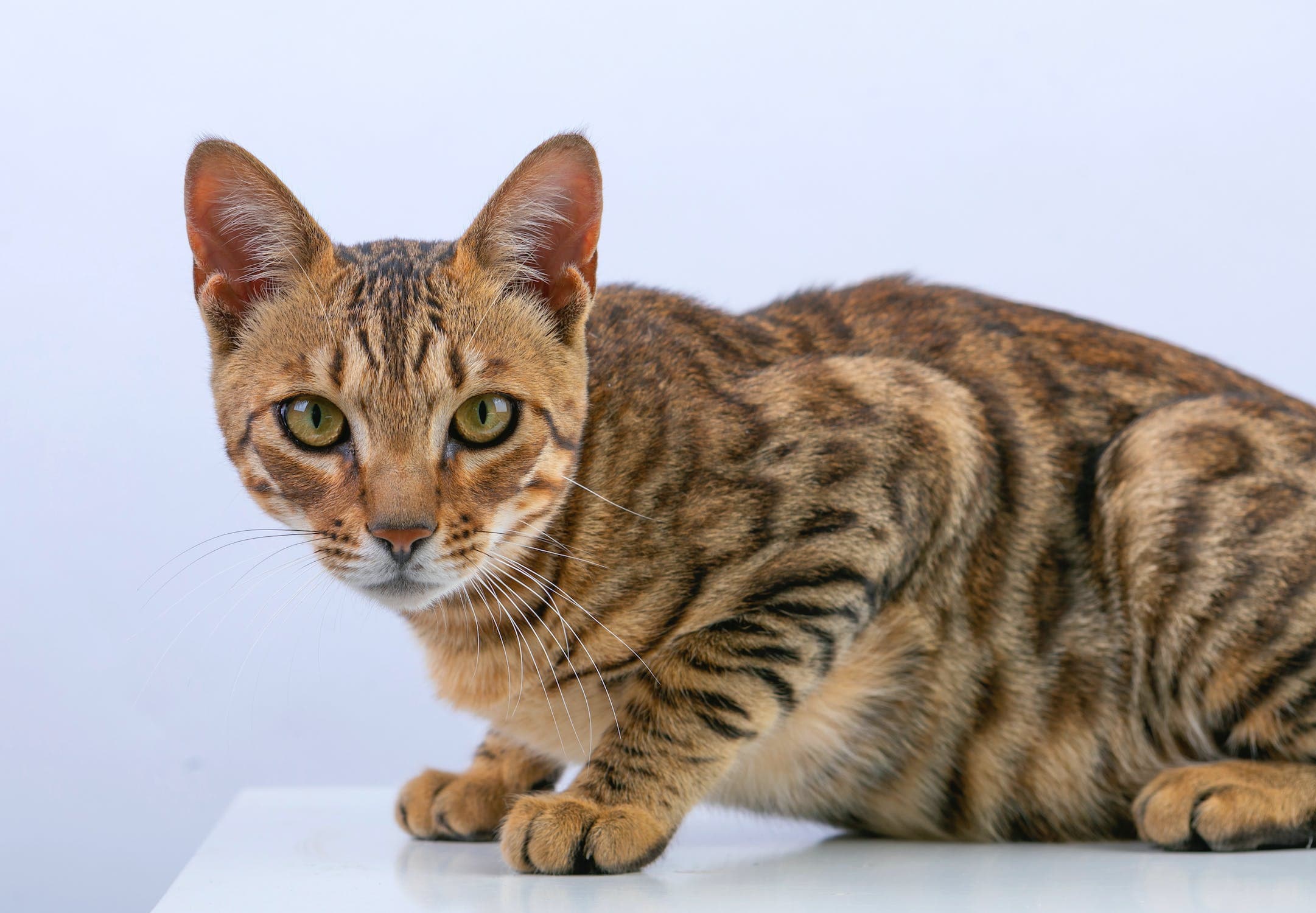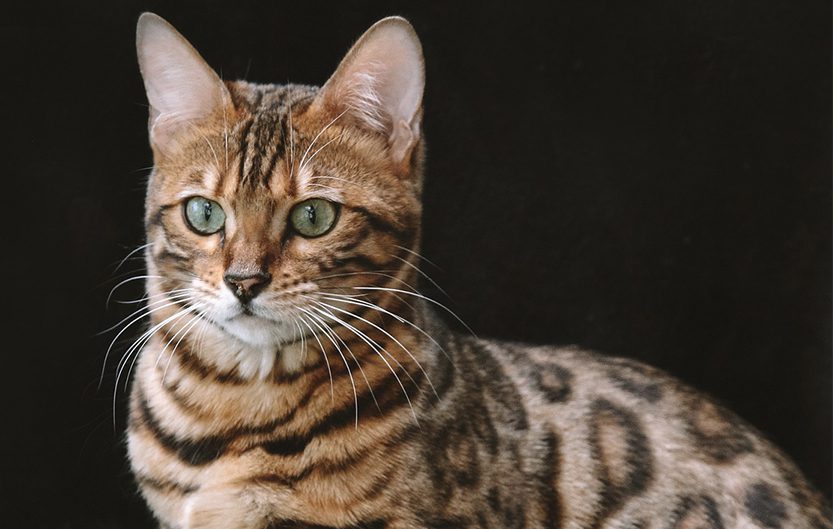Table of Contents Show
Bengal cats typically live for 12 to 16 years, though some may live longer with proper care. Bengal cats are known for their striking appearance and playful nature.
If you’re considering bringing one into your home, it’s important to understand their life expectancy. On average, Bengal cats live between 12 and 16 years, but with proper care, love, and attention, some individuals have been known to live even longer.
As with any pet, their lifespan can be influenced by various factors including genetics, diet, exercise, and overall healthcare. By understanding the average lifespan of Bengal cats, you can better prepare yourself for the commitment and joy of owning one of these unique and beautiful feline companions.
Factors Influencing The Lifespan Of Bengal Cats
Bengal cats, known for their stunning looks and playful personalities, can live long and healthy lives when provided with the right care and environment. However, several factors can influence their lifespan, ranging from genetics to the daily care they receive. In this article, we will explore some of these factors in detail.
Genetics And Breeding
The genetics of a Bengal cat plays a significant role in determining its lifespan. Responsible breeders strive to produce healthy kittens by selecting mating pairs with good genetic backgrounds. Through proper breeding practices, hereditary diseases and conditions that can shorten a cat’s lifespan can be minimized.
Diet And Nutrition
The importance of a well-balanced diet cannot be overstated when it comes to the lifespan of Bengal cats. Providing them with a nutritious and appropriate diet from the start can help prevent obesity and related health issues. A diet rich in high-quality protein, supplemented with essential vitamins and minerals, promotes overall health and longevity.
Exercise And Physical Activity
Regular exercise and physical activity are crucial for maintaining the health and vitality of Bengal cats. Engaging in interactive play sessions with toys and providing them with climbing structures and scratching posts not only keeps them physically fit but also stimulates their minds. Regular exercise helps prevent weight gain and promotes a longer and healthier life.
Healthcare And Veterinary Care
Proper healthcare and regular veterinary check-ups can significantly impact the lifespan of Bengal cats. Routine vaccinations, deworming, and parasite prevention are essential to protect them from common diseases and infections. Additionally, annual wellness exams can detect any underlying health issues early on, allowing for prompt treatment and better long-term outcomes.
Environmental Factors
The environment in which Bengal cats live can also influence their lifespan. An enriched environment with mental stimulation, hiding places, and opportunities for exploration can contribute to their overall well-being. Avoiding exposure to harmful chemicals, providing a safe outdoor space if allowed, and ensuring a stress-free living environment are important considerations for maximizing their lifespan.

Credit: basepaws.com
Average Lifespan Of Bengal Cats
Bengal cats have an average lifespan of 12 to 16 years, but some can live up to 20 years with proper care and a healthy lifestyle. They are known for their active nature and playful disposition, making them beloved pets for many.
How Long Do Bengal Cats Usually Live?
When it comes to the average lifespan of Bengal cats, there are several factors to consider. On average, these magnificent felines tend to live for 12 to 16 years, with some living even longer. However, it’s important to note that every Bengal cat is unique, and individual lifespans can vary based on various factors.
Factors That Can Affect The Lifespan Of Bengal Cats
Several factors can influence the lifespan of Bengal cats. By understanding these factors, you can ensure that your beloved Bengal lives a long, happy, and healthy life.
- Diet and nutrition: Providing your Bengal cat with a balanced and nutrient-rich diet is crucial for its overall well-being. Feeding them a high-quality cat food that meets their specific dietary requirements can help prevent health issues and extend their lifespan.
- Exercise and mental stimulation: Bengals are known for being active and playful cats. Engaging them in regular exercise and providing them with opportunities for mental stimulation can contribute to their overall health and longevity.
- Genetics: The genetic makeup of a Bengal cat plays a role in its lifespan. Certain genetic health conditions or predispositions may affect how long a Bengal cat can live. However, responsible breeding practices can help minimize these risks.
- Veterinary care: Regular check-ups and vaccinations are essential for maintaining a Bengal cat’s health. Timely veterinary care can help detect and address any potential health issues early on, ensuring a longer and healthier life for your furry friend.
- Environmental factors: Providing a safe and stress-free environment is vital for Bengal cats. Minimizing exposure to harmful substances, keeping them indoors, and providing a comfortable living space can contribute to their overall well-being and lifespan.
- Spaying/neutering: Sterilizing your Bengal cat not only helps control the population but also offers various health benefits. Spaying/neutering can reduce the risk of certain cancers and reproductive disorders, ultimately extending their lifespan.
By considering these factors and taking proactive steps towards your Bengal cat’s health and well-being, you can increase their chances of living a long and fulfilling life by your side.
Tips For Increasing The Lifespan Of Bengal Cats
Increase the lifespan of Bengal cats with these helpful tips. Providing a balanced diet, regular vet check-ups, ample exercise, and a stimulating environment can contribute to their longevity.
Proper Diet And Nutrition
Bengal cats, like any other living beings, require a proper diet and nutrition to live a long and healthy life. Feeding them a well-balanced diet that consists of high-quality cat food is crucial. A diet rich in essential nutrients such as protein, vitamins, and minerals can help support their overall health and immune system. It is important to feed them the right amount of food, based on their age, weight, and activity level, to prevent obesity or malnutrition.
Regular Exercise And Mental Stimulation
Bengal cats are known for their high energy levels and playful nature. Regular exercise is key to keeping them physically fit and mentally stimulated. Engaging them in interactive play sessions or providing them with toys and scratching posts can help channel their energy and prevent boredom. Mental stimulation, such as puzzle toys or treat-dispensing toys, can also keep their minds sharp and prevent behavioral issues.
Routine Veterinary Care
Regular veterinary check-ups are essential for ensuring the overall well-being of Bengal cats. Routine vaccinations, deworming, and preventive treatments for common feline illnesses are necessary to keep them healthy and protected. Regular dental care, including brushing their teeth and providing dental treats, can also help maintain good oral hygiene. Spaying or neutering your Bengal cat can prevent certain health issues and unwanted behaviors.
Creating A Safe And Stimulating Environment
Bengal cats thrive in environments that provide both safety and stimulation. Make sure your home has secure windows and doors to prevent accidental escapes. Creating vertical spaces such as cat trees or shelves can give them opportunities to climb, jump, and exercise their natural instincts. Offering hiding spots and cozy beds can also provide them with a sense of security. It is important to use cat-friendly and non-toxic household products to avoid any potential harm.

Credit: catinaflat.com
Frequently Asked Questions On How Long Does Bengal Cats Live
How Long Do Bengal Cats Live On Average?
On average, Bengal cats have a lifespan of 12 to 16 years. However, with proper care, they can live up to 20 years or even longer. Regular vet check-ups, a balanced diet, and a safe environment can help ensure a longer and healthier life for your Bengal cat.
What Factors Can Affect The Lifespan Of Bengal Cats?
Various factors can impact the lifespan of Bengal cats. Genetics, overall health, diet, exercise, and environmental factors play important roles. Providing a balanced diet, regular exercise, keeping them indoors to minimize risks, and establishing a strong bond with your Bengal cat can positively impact their lifespan.
Are Bengal Cats Prone To Any Specific Health Issues?
While Bengal cats are generally healthy, they can be prone to certain health issues. Some of these include progressive retinal atrophy (PRA), hypertrophic cardiomyopathy (HCM), and patellar luxation. Regular vet check-ups and genetic testing can help detect and manage these potential health issues in Bengal cats.
How Can I Ensure A Long And Healthy Life For My Bengal Cat?
To ensure a long and healthy life for your Bengal cat, provide them with a balanced diet that meets their nutritional needs. Regular exercise, mental stimulation, and a safe environment are also important. Regular vet check-ups, vaccinations, spaying/neutering, and parasite prevention are vital for their well-being.
Conclusion
Ultimately, the lifespan of Bengal cats can vary depending on several factors such as their genetics, lifestyle, and overall care. However, with proper care and attention, Bengal cats can live anywhere between 12 to 16 years on average. It’s important for Bengal owners to provide a balanced diet, regular check-ups, and a stimulating environment to ensure their furry companions live a long and healthy life.
Remember, every Bengal cat is unique, and so will be their lifespan.







